This article was co-authored by Chris M. Matsko, MD. Dr. Chris M. Matsko is a retired physician based in Pittsburgh, Pennsylvania. With over 25 years of medical research experience, Dr. Matsko was awarded the Pittsburgh Cornell University Leadership Award for Excellence. He holds a BS in Nutritional Science from Cornell University and an MD from the Temple University School of Medicine in 2007. Dr. Matsko earned a Research Writing Certification from the American Medical Writers Association (AMWA) in 2016 and a Medical Writing & Editing Certification from the University of Chicago in 2017.
There are 27 references cited in this article, which can be found at the bottom of the page.
wikiHow marks an article as reader-approved once it receives enough positive feedback. This article received 18 testimonials and 93% of readers who voted found it helpful, earning it our reader-approved status.
This article has been viewed 1,742,841 times.
Kidney stones, also known as renal lithiasis or calculi, occur when small mineral crystals form in the kidney. Kidney stones are painful, but you may be able to treat them yourself. However if the pain persists, make sure to see your doctor
Steps
Treating Kidney Stones
-
1Drink plenty of water and other fluids. Fluid intake will make you urinate, and urination will eventually help you pass the kidney stone. Pure water is the best. Only one or two out of 10 kidney stones will require more than drinking lots of water and waiting[1] , so make sure that if you do anything, you do this.
- The Institute of Medicine recommends that women drink about nine cups (2.2 liters) of fluids per day. Men should drink about 13 cups (3 liters) of fluids per day. [2]
- Aim to drink enough water so that your urine is light yellow or clear. This is a sign that you are drinking enough liquids.
-
2Drink lemonade, limeade, or cranberry juice. You should look for varieties that are low in sugar, or make your own. Lemons, limes, and cranberries are very high in citric acid, which helps prevent crystals from increasing in size and becoming new kidney stones.[3] [4]
- Avoid dark beers. These contain oxalates, which can contribute to future kidney stones.[5]
Advertisement -
3Take pain medication, if necessary. Take NSAIDs, or nonsteroidal anti-inflammatory drugs. NSAIDs come in various forms: ibuprofen (Motrin in particular may be effective), naproxen (Aleve), or aspirin are all commonly-used NSAIDs.[6] If you are under the age of 18, do not take aspirin, as it has been linked to a dangerous disease called Reye's Syndrome, which causes acute brain damage.[7]
- If you are dealing with a large, painful kidney stone, you may need to get a prescription-strength pain medication. Your doctor will be able to better diagnose the situation if this occurs.
-
4Know when to see a doctor. Most kidney stones will pass with a little bit of patience and a lot of fluid. About 15% of kidney stones will require intervention from the help of a doctor. See a doctor if you:[8]
- Have frequent urinary tract infections (UTIs). Urinary tract infections can get worse when a kidney stone is introduced.[9]
- Have had a kidney transplant, have a compromised immune system, or currently possess only one kidney.
- Are pregnant. Treatment of stones during pregnancy usually depends on the trimester of pregnancy.
- You believe your kidney stone has been obstructing your urinary tract. Signs of obstruction include reduced urine flow, urinating at night, and side pain.[10]
-
5Take medication or schedule a removal procedure if the stone does not pass. If the kidney stone does not pass on its own, you may need medication or one of several procedures to remove the stone.
- Shock wave lithotripsy (SWL) is ideal for kidney stones under 2 cm. This is not a good choice for pregnant women, as it requires an x-ray to locate the stone, and it may not work on very large stones.[11]
- For stones located in the ureter, your doctor may perform a ureteroscopy. This entails the insertion of a tiny camera into your ureter so the doctor can see the stone and then remove it by inserting a wire basket through your bladder and into your ureter, pulling the stone free.[12]
- If you have a large (larger than 2 cm) or irregularly-shaped kidney stone, your doctor may perform a percutaneous nephrolithotomy or a percutaneous nephrolithotripsy.[13] While you are under general anesthesia, the surgeon will make a small incision in your back and remove (nephrolithotomy) or break up (nephrolithotripsy) the kidney stone.[14]
- If your kidney stones are the result of hypercalciuria, meaning your kidneys produce a high level of calcium, your doctor may prescribe a diuretic, orthophosphates, bisphosphonates, or, more rarely, calcium-binding agents.
- If you are also suffering from gout, you may be prescribed allopurinol.
Preventing Kidney Stones
-
1Stay away from sugar, soda, and corn syrup. Sugar disrupts the body's ability to absorb calcium and magnesium, making it a culprit in the formation of kidney stones. Fructose, found in table sugar and high fructose corn syrup, is connected to increased risk of kidney stones.[15] If you want to give your body a healthier lifestyle, and avoid kidney stones while you're at it, try cutting down on the sugar you consume.
- Some citrus-flavored sodas, such as 7UP and Sprite, contain high levels of citric acid. While you should avoid high-sugar beverages, the occasional clear soda may be a good way to increase your citric acid intake.[16]
-
2
-
3Restrict animal protein to 6 ounces or less daily. Animal protein, especially red meats, increases your risk of developing kidney stones, especially uric acid stones. Keep animal protein intake to 6 ounces or less — about the size of your palm or a pack of cards — per day to help reduce your risk of developing all types of kidney stones.
- Red meats, organ meats, and shellfish are high in a substance called purine. Purine increases your body’s production of uric acid and can cause kidney stones.[19] Eggs and fish also contain purines, although less than red meats and shellfish.
- Get protein from other sources, such as calcium-rich dairy or legumes. Legumes contain fiber and phytate, a compound that may help prevent kidney stones from forming. Be careful of soybeans, though, as they contain high levels of oxalate.[20]
-
4Eat enough calcium but avoid supplements. The fact that many kidney stones are made of calcium may make reducing your calcium intake sound like a good idea. However, research shows that diets that are too low in calcium actually increase your risk of kidney stones. Eat a good variety of dairy products, such as milk, yogurt, and cheese, to meet your daily calcium needs.[21]
- Children four to eight years old need 1,000 mg of calcium daily. Children 9-18 should get 1,300 mg of calcium daily. Adults 19 and older require at least 1,000 mg of calcium daily. Women over 50 and men over 70 should take 1,200 mg of calcium a day.[22]
- Unless your doctor recommends them, avoid calcium supplements. While the calcium you get from your diet has no effect on kidney stones, consuming too much calcium from supplements may increase your risk of developing kidney stones.
-
5Eat a “low-oxalate” diet. The most common type of kidney stone is composed of calcium oxalate. Avoiding foods that are high in oxalate can help prevent future kidney stones. Limit your oxalate intake to 40 – 50mg daily[23]
- Eat foods that contain oxalates at the same time as foods that contain calcium. The oxalate and calcium are more likely bind to each other before they reach the kidneys, reducing your risk of developing kidney stones from these foods.[24]
- Foods that are high in oxalate (10mg+ per serving) include nuts, most berries, wheat, figs, grapes, tangerines, beans, beets, carrots, celery, eggplant, kale, leeks, olives, okra, peppers, potatoes, spinach, sweet potato, and zucchini.
- Beverages that contain high levels of oxalate (more than 10mg per serving) include dark beer, black tea, chocolate-based beverages, soy beverages, and instant coffee.
- Your body may turn high doses of vitamin C — such as those from supplements — into oxalate. Unless recommended by your doctor, don’t take vitamin C supplements.[25]
-
6Avoid crash dieting. Crash dieting increases the amount of uric acid in your bloodstream, elevating your risk of kidney stones. High-protein diets, such as the Atkins diet, are particularly hard on your kidneys and should be avoided.[26]
- That said, a healthy, balanced diet with plenty of fruits and vegetables, legumes, whole grains, and limited lean proteins can be a great way to keep you healthy and prevent kidney stones.
-
7Be especially vigilant if you have a history of kidney stones. According to studies, about half of all patients to come down with a kidney stone will have another within 7 years of the first.[27] Be sure to take preventative measures if you've already had a kidney stone; it means you're even more at-risk.
Expert Q&A
Did you know you can get expert answers for this article?
Unlock expert answers by supporting wikiHow
-
QuestionHow can I learn to treat my kidney stone?
 Chris M. Matsko, MDDr. Chris M. Matsko is a retired physician based in Pittsburgh, Pennsylvania. With over 25 years of medical research experience, Dr. Matsko was awarded the Pittsburgh Cornell University Leadership Award for Excellence. He holds a BS in Nutritional Science from Cornell University and an MD from the Temple University School of Medicine in 2007. Dr. Matsko earned a Research Writing Certification from the American Medical Writers Association (AMWA) in 2016 and a Medical Writing & Editing Certification from the University of Chicago in 2017.
Chris M. Matsko, MDDr. Chris M. Matsko is a retired physician based in Pittsburgh, Pennsylvania. With over 25 years of medical research experience, Dr. Matsko was awarded the Pittsburgh Cornell University Leadership Award for Excellence. He holds a BS in Nutritional Science from Cornell University and an MD from the Temple University School of Medicine in 2007. Dr. Matsko earned a Research Writing Certification from the American Medical Writers Association (AMWA) in 2016 and a Medical Writing & Editing Certification from the University of Chicago in 2017.
Family Medicine Physician
-
QuestionWhat should I do if I have multiple large kidney stones?
 Chris M. Matsko, MDDr. Chris M. Matsko is a retired physician based in Pittsburgh, Pennsylvania. With over 25 years of medical research experience, Dr. Matsko was awarded the Pittsburgh Cornell University Leadership Award for Excellence. He holds a BS in Nutritional Science from Cornell University and an MD from the Temple University School of Medicine in 2007. Dr. Matsko earned a Research Writing Certification from the American Medical Writers Association (AMWA) in 2016 and a Medical Writing & Editing Certification from the University of Chicago in 2017.
Chris M. Matsko, MDDr. Chris M. Matsko is a retired physician based in Pittsburgh, Pennsylvania. With over 25 years of medical research experience, Dr. Matsko was awarded the Pittsburgh Cornell University Leadership Award for Excellence. He holds a BS in Nutritional Science from Cornell University and an MD from the Temple University School of Medicine in 2007. Dr. Matsko earned a Research Writing Certification from the American Medical Writers Association (AMWA) in 2016 and a Medical Writing & Editing Certification from the University of Chicago in 2017.
Family Medicine Physician
Warnings
- Don’t avoid urination because it hurts. It’s important to help you pass the kidney stone.⧼thumbs_response⧽
References
- ↑ https://www.webmd.com/kidney-stones/understanding-kidney-stones-treatment#1
- ↑ http://www.mayoclinic.org/healthy-living/nutrition-and-healthy-eating/in-depth/water/art-20044256
- ↑ https://www.uwhealth.org/files/uwhealth/docs/pdf/kidney_citric_acid.pdf
- ↑ http://kidneystones.uchicago.edu/new-post/
- ↑ http://www.upmc.com/patients-visitors/education/nutrition/Pages/low-oxalate-diet.aspx
- ↑ http://www.webmd.com/kidney-stones/kidney-stones-home-treatment
- ↑ http://www.nlm.nih.gov/medlineplus/ency/article/001565.htm
- ↑ https://patient.info/kidney-urinary-tract/kidney-stones
- ↑ http://www.webmd.com/kidney-stones/kidney-stones-what-happens
- ↑ https://www.merckmanuals.com/home/kidney-and-urinary-tract-disorders/obstruction-of-the-urinary-tract/urinary-tract-obstruction
- ↑ https://www.kidney.org/atoz/content/kidneystones_shockwave
- ↑ https://www.kidney.org/atoz/content/kidneystones_Ureteroscopy
- ↑ https://www.kidney.org/atoz/content/kidneystones_PNN
- ↑ https://www.kidney.org/atoz/content/kidneystones_PNN
- ↑ https://www.kidney.org/atoz/content/kidneystones
- ↑ http://kidneystones.uchicago.edu/new-post/
- ↑ http://www.webmd.com/kidney-stones/news/20131213/light-exercise-might-reduce-risk-of-kidney-stones
- ↑ http://www.mayoclinic.org/healthy-lifestyle/fitness/expert-answers/exercise/faq-20057916
- ↑ https://www.kidney.org/atoz/content/kidneystones_prevent
- ↑ http://www.nytimes.com/health/guides/disease/kidney-stones/prevention.html
- ↑ https://www.mayoclinic.org/diseases-conditions/kidney-stones/diagnosis-treatment/drc-20355759
- ↑ http://ods.od.nih.gov/factsheets/Calcium-HealthProfessional/
- ↑ http://www.upmc.com/patients-visitors/education/nutrition/Pages/low-oxalate-diet.aspx
- ↑ https://www.kidney.org/atoz/content/kidneystones_prevent
- ↑ http://www.upmc.com/patients-visitors/education/nutrition/Pages/low-oxalate-diet.aspx
- ↑ https://www.kidney.org/atoz/content/kidneystones
- ↑ https://www.webmd.com/kidney-stones/understanding-kidney-stones-prevention#2
- ↑ ”Natural treatments for kidney stones,” Salem Press Encyclopedia of Health, 2012
- ↑ https://www.kidney.org/atoz/content/kidneystones
About This Article
If you think you have a kidney stone, increase your fluid intake to 9 cups (2.1 L) of fluids a day for women and 13 cups (3.1 L) a day for men. Most of your fluids should be water, but juices that are high in citric acid, like lemonade or cranberry juice, can help keep your kidney stones from getting bigger. Take NSAIDs to relieve the pain until your kidney stones passes, and consult your doctor if the symptoms don’t improve after a few days. Read on for tips on how diet and exercise can help prevent kidney stones! Keep reading for more tips from our Physician co-author, like how to improve your diet and exercise to prevent kidney stones!
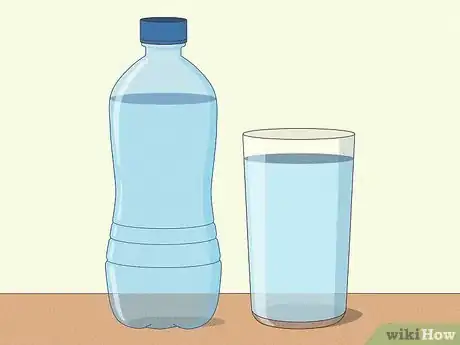
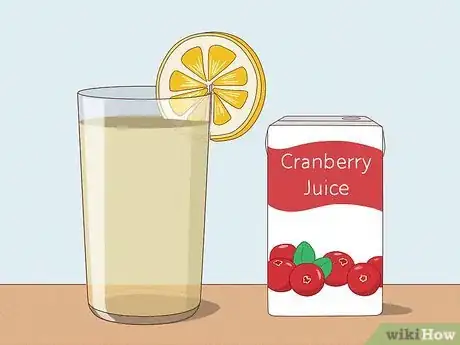
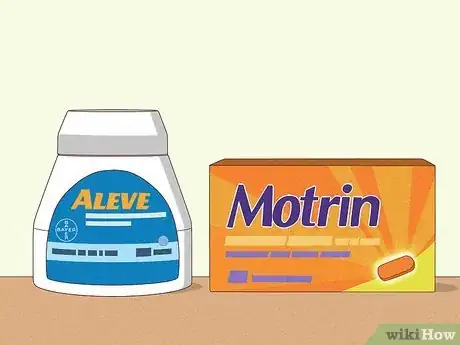
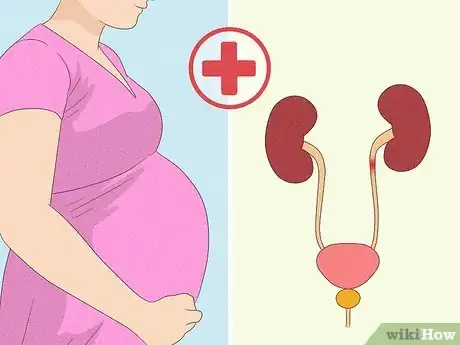
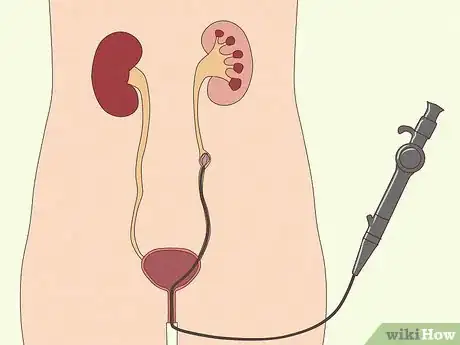
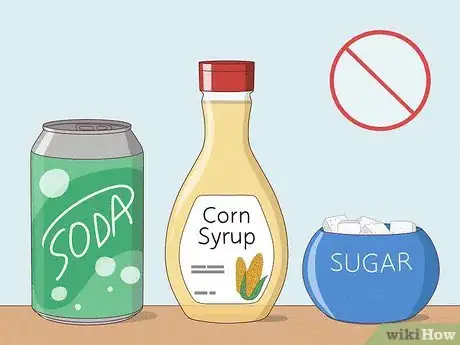
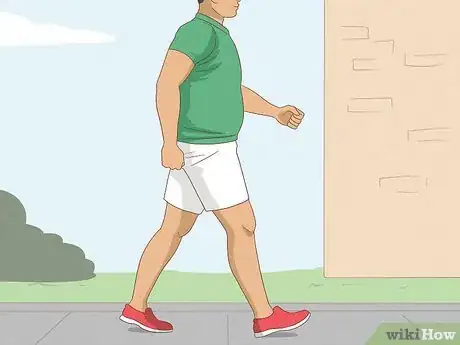
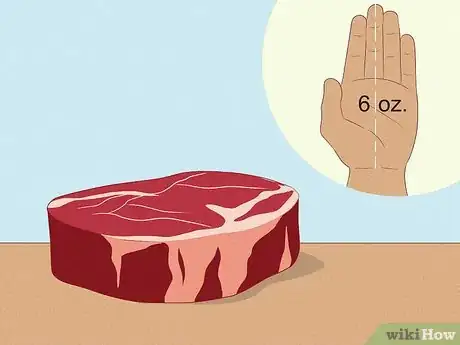
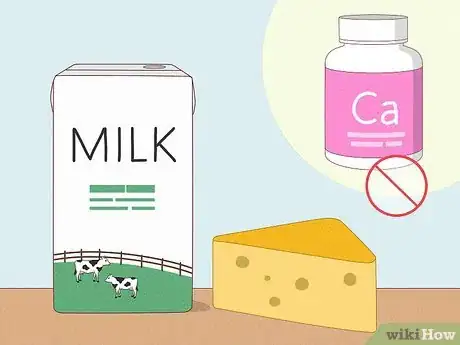

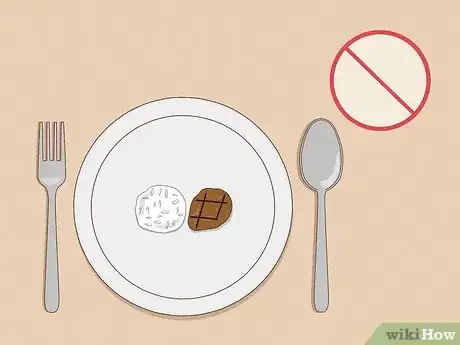
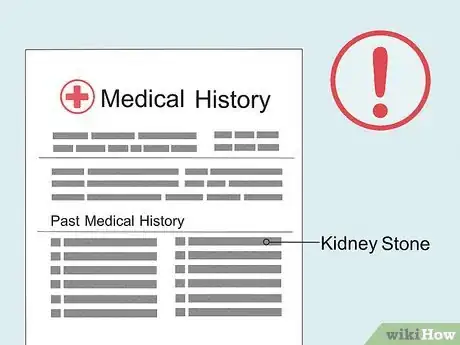
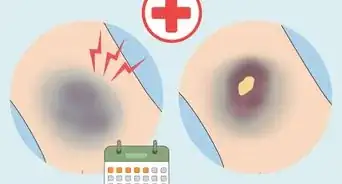
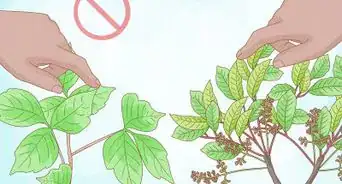
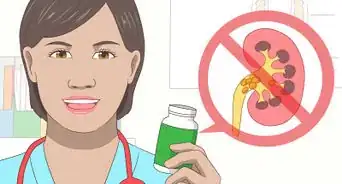
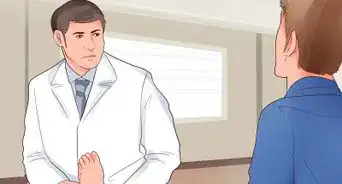
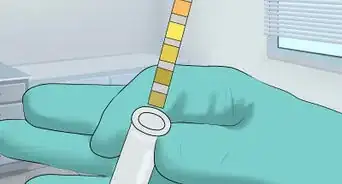

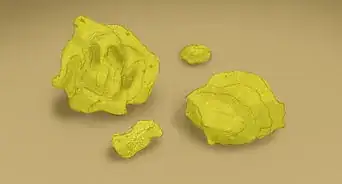
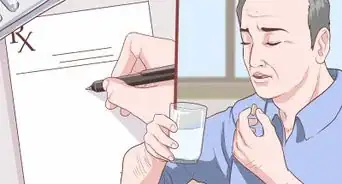
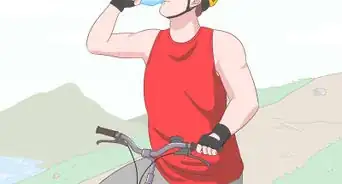
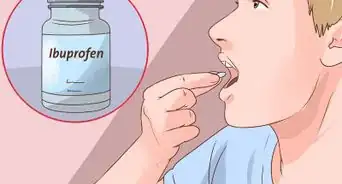
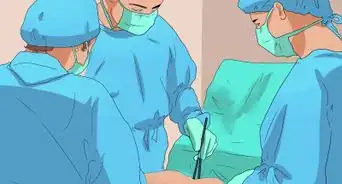
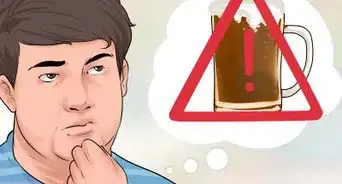











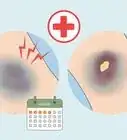
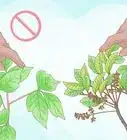
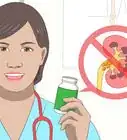
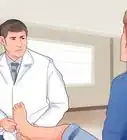




































Medical Disclaimer
The content of this article is not intended to be a substitute for professional medical advice, examination, diagnosis, or treatment. You should always contact your doctor or other qualified healthcare professional before starting, changing, or stopping any kind of health treatment.
Read More...